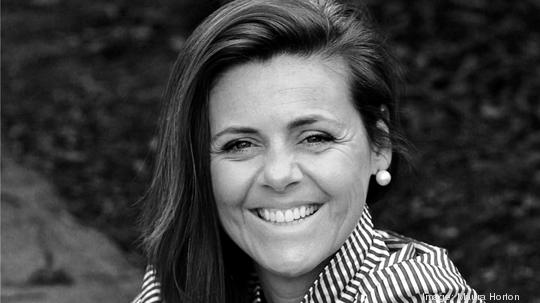
The idea for MagnaReady has its roots in a football locker room at North Carolina State University.
Maura Horton’s late husband, former Wolfpack offensive line coach Don Horton, was diagnosed with Parkinson’s disease at age 48.
“One day he was stuck in a locker room, unable to get dressed … his fingers just weren’t working that day,” Maura Horton recalls.
Russell Wilson, the Wolfpack's star quarterback from 2007 to 2010 who's now with the Denver Broncos in the NFL – helped coach Horton get dressed in silence.
“My husband told me he had a hard day," Maura said.
She wanted to help. So she turned to the internet, looking for products that could help – “and there was nothing available.” So Horton leveraged her design background and decided to invent a solution – magnetic clothing to make it easier for people with limited mobility to get dressed.
She made the first prototype herself – but there were some stumbles along the way. While the first shirt worked, “the magnets were not coated in a plastic coating and as soon as I washed it, it corroded.”
But she learned from her mistakes, launching with a dress shirt in two colors and selling out in two months. That was in 2013. Little by little, she grew the business, scoring major licensing deals with brands such as Land’s End and PVH Corp., the parent company of Tommy Hilfiger.
In 2019, she sold the firm to David Peyser Sportswear of New York. Horton declined to comment on the terms.
She is still company president, still running the firm from Raleigh.
Don Horton died in 2016 – ten years after his diagnosis. He coached under Tom O'Brien until 2012 when he became N.C. State's director of football operations.
Maura, who holds four patents, continues pushing to make a difference.
“It’s bigger than just selling and creating a technology,” she said. “It’s really trying to make a change in the whole industry. … As we age, become disabled … we all need products and services that can adapt to our living needs.”
Horton has advice for other female entrepreneurs looking to launch companies that make a difference. Just get out there.
“I didn’t know what I didn’t know,” she said. “And that was probably helpful. One connection leads to another connection on your roadmap.”
Her technology was recently featured in Southern Living's Adaptive Cottage project.